Curriculum Information I Group Year 7
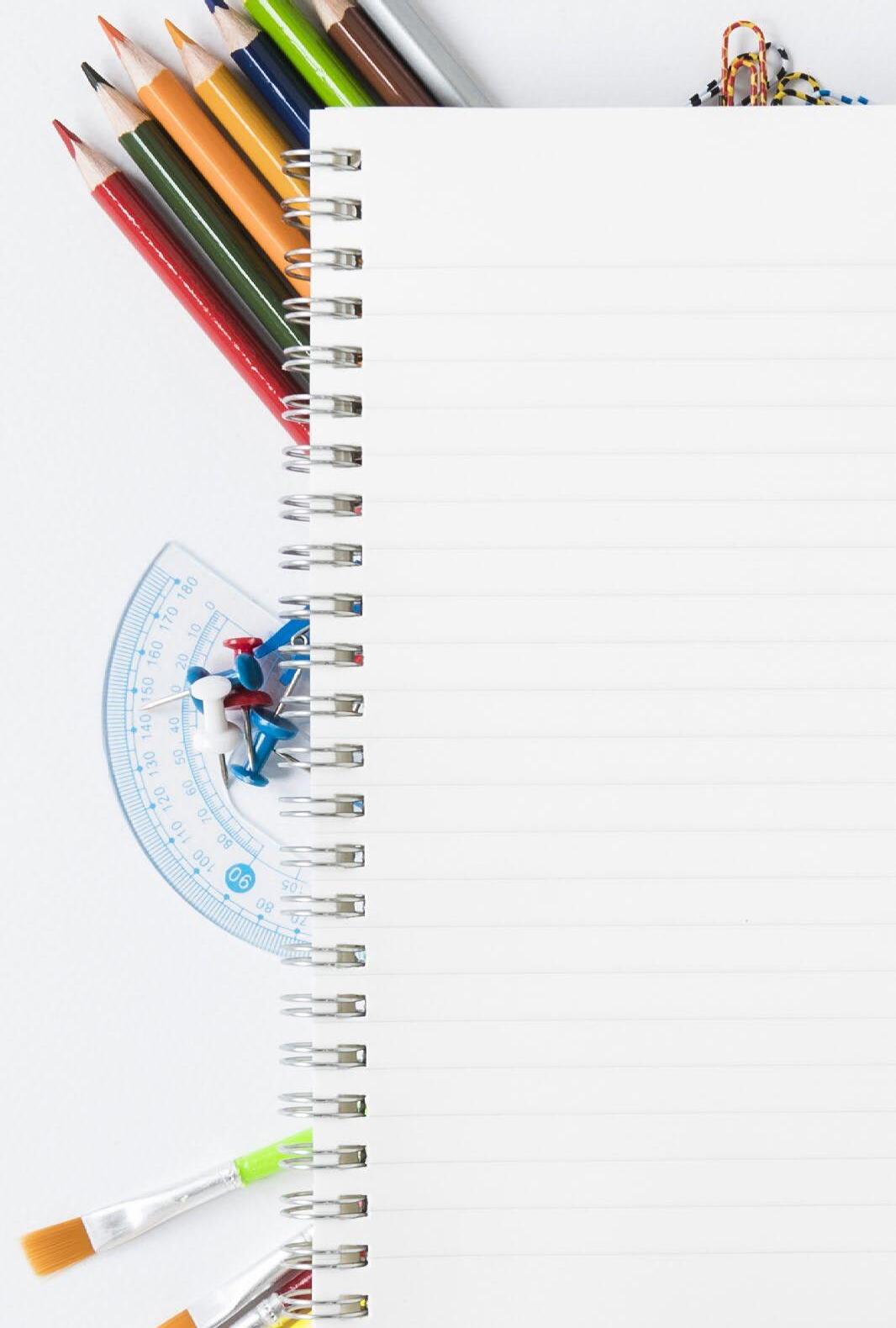
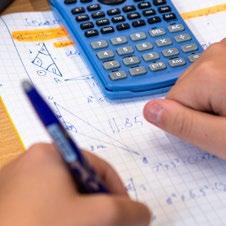



7
The School follows a two-week, 60 period timetable. Each period is 50 minutes long.
Students are taught in mixed ability group settings except for mathematics, where groups are set based on ability. I Group have a phased introduction of homework; Only core subjects set homework (English, mathematics and science) at the beginning of the year and then other subjects begin setting homework after October half term. Company Advisers oversee the management of homework diaries. Homework is set for up to 60 minutes per night (with up to 30 minutes per individual subject task.)
Below you will find a summary of the main topics covered in I Group, the name of the Head of Subject and the number of periods students have for each subject per fortnight.

Amy Anderson 8 periods
Head of Department
Building Foundations in Storytelling and Drama. This curriculum introduces students to key literary and language skills through rich storytelling. Beginning with The Ruby in the Smoke, students explore narrative structure and character development. They then apply these techniques in their own writing during a unit on Ghosts and Building Tension. Shakespeare is introduced in the spring, focusing on dramatic form and character analysis, culminating in a thematic study of Shakespeare’s villains. The year ends with a creative dystopian writing unit, blending imagination with technical writing precision.

Claire Slater
8 periods
Throughout the year, students work on a number of topics to develop their mathematical skills. These include the exploration and application of negative numbers and decimal numbers, probability, ratio and proportion, angles, perimeters and areas of simple geometric shapes, and the introduction of algebra. Students also study data handling, where we plot and interpret graphs. Throughout the course students are encouraged to support their answers with clear written methods. Problem solving challenges are used to extend and challenge students within the context of topics. Work is differentiated to meet the needs of students enabling them to succeed at their own level. We use Sparx Maths for homework. This resource supports independent learning through individualised differentiated questions, each accompanied by video tutorial explanations.
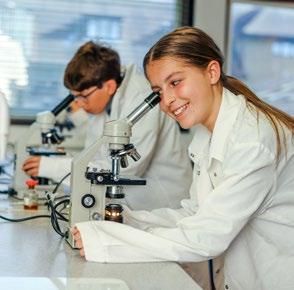
Andrew Lambie 7 periods
Students follow the Activate course and cover the Key Stage Three (KS3) curriculum. A wide range of topics are covered in all three sciences and include cells, particles, forces, chemical reactions, reproduction, light and sound. Lessons have an interactive focus with students completing many practicals to build and develop their skills and confidence in the laboratory. The students are tested at the end of each topic. The textbook and resources are available online through www.kerboodle.com (Activate 1) - all students are given a login for this website.
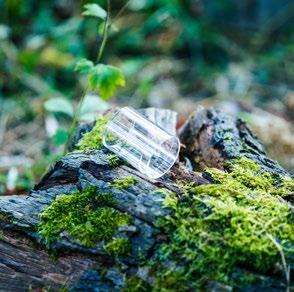

Charlotte Leeke 3 periods
Students explore a range of ‘big questions’ related to both human and physical geography: What has geography got to do with me?
(My Geography and Skills)
How is the UK and the rest of the world connected?
(UK Geography)
Who is responsible for solving global warming?
(Weather and Climate)
How and why do coastlines change? (Coasts)
Becca Toepfer
3 periods
Students journey through the Middle Ages, from the Norman Conquest all the way through to Tudor England and the reign of Elizabeth I. The key focus is to teach the students how to write well-argued paragraphs and give them a good basis in written communication. The lessons also include a broad range of interactive elements such as a role play of a medieval village suffering from the Black Death and a game exploring how to survive in gruesome medieval towns. Students work with contemporary sources, and also use historiography to examine why historians from different time periods have differing perspectives.
Cyrille Simon 3 periods
Students begin to communicate in French, and gain an awareness of language in general. The skills of speaking and listening for understanding are emphasised over those of reading and writing, although these will also be used for consolidation. Grammar is introduced formally and consolidated systematically throughout the course.
Topics include personal information, physical appearance, personality, family, friends, school, home and animals. Students work with the “Allez” resources as well as with various internal resources including interactive activities both in and outside lessons. We encourage the use of IT both in class and at home, with Quizlet, Linguascope and Languagesonline our preferred platforms.
Cyrille Simon 2 periods
In I Group, students are introduced to the Spanish language and culture. There is an emphasis on the skills needed for speaking and listening, although there will be some reading and writing introduced during the year. They also work with the Zoom textbook and various internal resources including interactive activities both in and outside lessons. The following topics are covered: Greetings, personal identification, family, physical appearance, pets, colours, school subjects, likes and dislikes, clothes, weather, the world around us, countries and nationalities, sports and traditions in Spanish speaking countries.
Hollie Sparrow 3 periods
Students are introduced to a range of theatrical styles, genres, acting techniques and drama games. The drama skills we focus on are physical and vocal skills with an emphasis on performing in front of the class each week to help build self-confidence. We focus on pantomime during the Christmas period to develop characterisation and use scripts to progress reading skills. Towards the end of the academic year students look at movement and dance and how this is incorporated in theatre.
Emma Semple 3 periods
Students are encouraged to build confidence as they experience a broad range of techniques and processes. Observational drawing runs alongside imaginative two dimensional work, modelling and construction in clay and editing in digital media. Students investigate individual artists and art movements to develop contextual understanding as they learn to make their own creative decisions.
Gavin Fraser-Williams 3 periods
Over the year students are introduced to a number of key techniques, materials and creative approaches to both design and making. Studies typically begin with a “flying bird” project using carved softwood and laminated aero ply; then students move on to personal designs for small scale wearable or decorative items in wood / metal / plasticsusing CAD (Computer Aided Design), laser cutting, and hand forming techniques. A large part of the focus is on building core skills, including safe working practices. The aim is to build confidence and enjoyment of the possibilities for 3D work, and to explore personal creative ideas within carefully controlled parameters.

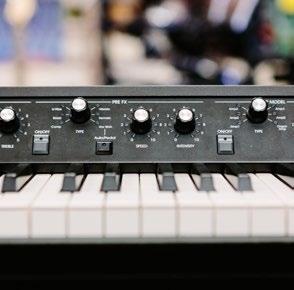
Ann-Marie Knight 2 periods
During the year, students take part in a variety of activities designed to enhance musical confidence, enjoyment and understanding. All students have access to a variety of musical instruments and singing can be an integral part of lessons. Group work, performance, and sharing of ideas occur regularly. The main focus of lessons is practical engagement, using composing and performing as underlying principles. Topics include; the elements of music, keyboard skills, song writing and notation with a focus on the treble clef.
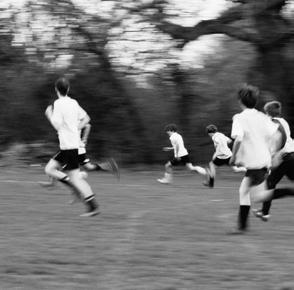
Lyn McGregor 4 periods
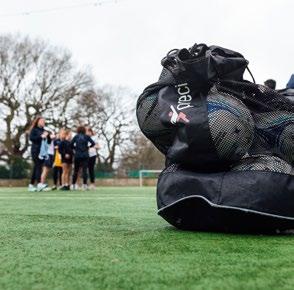
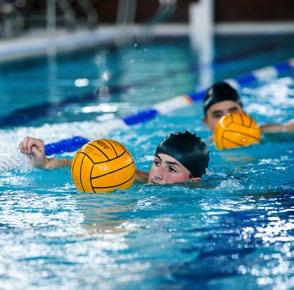
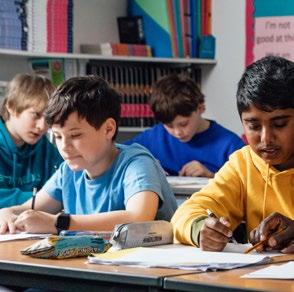
All students in I Group follow a modular course that includes a selection of sports and activities. In the autumn and spring terms: trampolining, football, netball, volleyball, health related fitness, gymnastics, rugby and badminton. There are competitions in other sports too, including our annual Inter-House Sports Day and Inter-House Cross-Country. In the summer term: athletics, striking, fielding and tennis. We aim for students to be able to transfer these skills to other sports; have an understanding of health-related fitness; encourage a sporting attitude of personal excellence (with the option of partaking in a competitive setting); but fundamentally develop a lasting enjoyment of physical activity.
Sarah Armstrong 2 periods
All students have a weekly swimming lesson throughout the academic year. Swimmers focus on only one key skill element during each phase of the lesson to create the greatest opportunity for them to succeed and progress. Each half term will have a different main stroke emphasis, with warm-ups helping swimmers ‘keep in touch’ with the other three stroke types. Equal importance, and lesson time, is spent on developing aquatic skills such as sculling, diving, personal safety, and water polo and students have the chance to improve more competitive proficiencies, for example in their turns and underwater transitions.
Lizzie Hedderson
2 periods
Personal, Social, Health and Economic education covers three themes; health and wellbeing, careers and finance, relationships. We being with a unit to support the transition to secondary school and increased understanding of personal safety as they may be traveling more independently.
A unit on health and puberty empowers out students to understand the changes associated with becoming a teenager. An enterprise project prepares them for our whole school summer fair: St Christapalooza!
Princess Curtis-Broni
2 periods
In Year I Group, students are introduced to the foundations of Computing. They learn about the different strands of the subject - Computer Science, Information Technology and Digital Literacy - and explore how these areas connect to the world around them. Through practical activities, they develop core digital literacy skills, such as safe and responsible use of technology, alongside problem-solving and logical thinking. Students also begin programming with Python, learning how to create simple programs using sequencing, selection, and iteration. By the end of the year, pupils will have built confidence in navigating digital tools, understanding how computers work, and applying creative thinking to real-world problems. Computing at this stage helps them to become critical, safe, and independent users of technology.
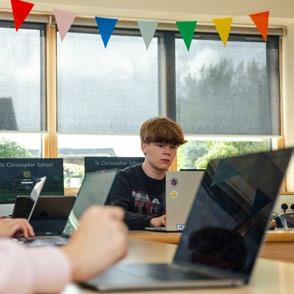
Cookery and environmental studies are taught in rotation across the year in approximately six week blocks. Students study one of the two subjects for one lesson per week (approximately 27 periods per year).
Nat Baker, Deputy Head
Becky Belson 2 periods
Students develop a range of cooking skills as well as learning about the foundations of nutrition and healthy eating.
The skills we cover are: knife skills, bread making, cooking rice and pasta, adjusting seasoning and using the oven and hob. Recipes cooked include; pasta salad, cheese scones, flapjacks, apple crumble, Bombay curry, pizza muffins and Mexican fiesta rice. Students will be introduced to the Eatwell Guide and encouraged to think about how to modify recipes to make them healthier. They also evaluate their cooking by reflecting on their organisation, hygiene and safety, food preparation skills and tidying up.
Emma Roskilly 2 periods
Our Environmental Studies lessons are an opportunity for students to learn about the environment and the natural world. Lessons are taught in the beautiful setting of "Arunwood" where we have a variety of livestock, small companion animals, reptiles and poultry as well as a vegetable garden, forest school area and lots of wild space for the pupils to explore.
As well as encouraging students to engage with environmental issues and learn about animal care and management, these lessons also have a strong focus on wellbeing, maintaining a practical focus and adapting as the seasons change.
I Group Topic areas covered are:
• First block: Where does our food come from?
• Second block: Getting to know the St Chris animals
• Third block: Ecosystems and habitats
Tabitha Bennett
Critical Thinking encourages students to examine the difference between fact and opinion, and misinformation and disinformation. In our digital age in which social media platforms are increasingly used as one's main source of information, it is very important that students learn the skills to think critically about the information presented to them, and apply logic and reasoning when they are forming judgements and opinions. The course also explores many cross curricular links, such as using English Literature when exploring narrative representations of disinformation in society (via George Orwell's '1984'), and History when exploring ancient examples of disinformation ad propaganda (spanning from the Roman Empire to the Second World War). They also augment their philosophical skills by applying their critical thinking to debate topics such as; the ethics of war, the death penalty, the extent to which religion is a force for good in society, and whether human nature is intrinsically good or evil. As a result, students are able to confidently navigate sources of information and determine informed views about the world around them.
Emma Roskilly
Every Thursday afternoon, all students in the Senior School participate in the Options programme, our timetabled period of co-curricular activity which takes place in addition to co-curricular clubs and activities. Every five weeks, students select an activity from a list of about 25 different Options to participate in. This is an exciting opportunity for students to spend extra time pursuing a passion, or to try out new things and take on new challenges. Options are varied and ever-changing but recent popular Options include debate, animal care, go-karting, football, recycled fashion, musical theatre, robotics, Warhammer and many, many more!
Three times a week (Tuesday, Wednesday and Thursday) there is an extended time with company advisers from 10:55am - 11:15am. Companies follow a programme of activities, organisational strategies, careers guidance and study skills. In addition, there are bespoke sessions covering social and emotional learning topics, mental health and wellbeing, and online safety. These extended periods can also be used as a time for selfreflection and target setting, following key reporting times such as Interim Reports or Parents’ Consultations. Twice a week (on a Monday and a Friday morning), students attend Morning Talk; this is time to join together with the whole school to listen to a presentation or thought-provoking talk from a member of staff or student.